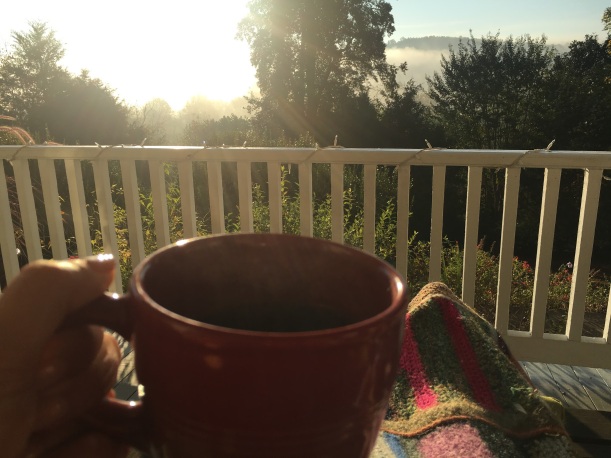 1312 words (10 minutes read)
1312 words (10 minutes read)
Excited, nervous, and prepared, I was sitting on the sofa in our hotel room waiting for Mike to get ready and take me to Tampa Convention Center. Going to my first AWP (Association of Writers and Writing Program), I felt like a little girl going to a new school wondering who her new friends will be. I got there a little late and also found out I had gone to the wrong building for the panel I wanted to listen to. But soon I figured it out and the marathon started. I ran from one panel to another and found my way to the book fair too. It was so much fun. My Fitbit celebrated thousands of steps I had taken by the end of the day. I was so tired that I had to skip the evening parties provided by AWP. Mike picked me up around 7:15. We had a nice dinner in downtown Tampa, enjoyed the atmosphere of the downtown with so many of local and conference people hanging around enjoying the chilly but not cold night by the ocean. Despite how tired I was, I was chattering the whole time telling Mike how much I enjoyed my day. At the end of the night, I don’t remember when my head touched the pillow.
The second day, Mike was ready earlier than me to get me there as soon as possible. This time, going to AWP felt like going to an amusement park for me. Listening to the smooth beautiful literary pieces written and read by academic professors took me up the roller coaster causing excess release of dopamine and Oxytocin in my body. Learning how network building could be easier when you are in touch academically and how far I am from it took me down the roller coaster releasing a lot of cortisol. The overall outcome was excitement and thrill.
I went to Tampa with no intention of going back to school and came back thinking about attending an MFA program. The academic panel talks were so inspiring. I have learned a lot about writing and literature during the past two and a half years, but attending these panels made me think I have no direction in my learning process. I am determined to improve my literary writing skills, but self-teaching is not as easy as I thought. I have been walking a zig-zag path, and found lots of gaps in my learning process. It’s time to give a frame to my learning process under the monitor of experts. The joy of being a student again and learning more, this time about a subject I love – literature and literary writing – felt so strong. Will I do it?
AWP offers a vast range of panels, talks, and discussions. I had two major categories for my personal pursuit in mind, non-fiction writing skills and the business of selling a book. I tried to carefully pick a few panels and lectures among the hundreds that were offered. I did end up leaving a few talks after 10 minutes to run to another one. Overall, I had a great first experience. At the end I felt overwhelmed and it felt good. I had reached my goal. Exhausted but with a big smile, I walked out. Mike was waiting for me to give me a big supportive, congratulating hug.
Here is a summary of my take away from AWP 2018:
Writing Skill Development (focused on non-fiction/memoir/personal essay)
- To write a memoir the writer needs to write a story rather than explaining the situation (recommended Vivian Gornick, The Situation and The Story). To do this we need:
- To add dimensions to the basic story that explains the situation. Reflections and lessons learned make the story readable.
- To focus on memories, we remember. As Philip Graham mentioned, stories in our minds cast a shadow. That is what needs to be revealed in a memoir.
- And, by researching and adding the history, we bring a broader approach to our story.
- The writer needs to be able to answer this question: why should anyone but me want to read my book? To write a good memoir is to have a good answer to SO WHAT?
- There are many selves in a personal essay or a memoir. The main ones are the remembering self (the now narrator self), and the remembered self.
- The remembering self is the wiser one that adds the reflections and answers the SO WHAT question. It is the one who finds the patterns of the memories.
- The remembered self is the one who talks about the memories, the main ingredient of the story.
- There are parts of a memoir we hesitate to write. Those parts might make us face a negativity about ourselves (a shadow) that we don’t want to know. Those are the parts that need to be written carefully and non-judgmentally.
My Picks @ Business of Selling a Book
Jeffrey Lependorf brought up the highlight for marketing. He emphasized to make sure you don’t market at, instead you need to share what you are doing and what you have to offer.
Before publishing the book
- Even if you are not ready to send query letters out, try to write one. It helps you find the main theme of your story and will keep you focused. Jane Friedman offers good advice in her blog.
- Submit short pieces to literary magazines
- Open an account in goodreads.com
- Write literary reviews for books in goodreads.com
- Seek Blog Hosts who will accept your blogs
- Host others in your blog, if you have one
- Every author needs a website, even a very simple one.
- Multimedia such as Facebook, Twitter, and Instagram are not required for everyone.
- Try to build your literary network by reaching out and focusing on small groups, not everyone. Be specific when choosing your audience!
- One way to ask for blurbs for your book is writing an honest fan letter to your favorite author and ask them to return the favor. Explain to them why they are among your favorite authors. Some publishers help with this as well.
- The panel offered by Pitch Wars organization was very helpful to understand what really needs to be in a query letter. This organization has a contest and reviews the entire manuscript for the winners of the contest in two and half months. The dates are in their website.
- They expect to see these items in the query letter:
- The theme of the story
- Establishing your main character
- What are the stakes for your character
- Why you are the right person to write this book
- Comparative titles (not the best sellers and not too old)
- In a query letter to an agent, you can also mention why you selected that agent.
- They expect to see these items in the query letter:
Marketing After Publishing the Book
- The marketing responsibilities vary from publisher to publisher, but at the end the author has the responsibility for reaching out to the right communities to find the most interested audience.
- Finding organizations related to your book subject. Cooking? Disabilities? Exotic Cultures? Illnesses? Religions?
- Find out if you can get an opportunity for a NPR interview related to your story or related to other interesting subjects of your life.
- Take the Author Questionnaire (provided by your publisher) seriously and fill it out with clear and thorough explanations about yourself.
- The information you provide in the Author Questionnaire helps your publisher find the right audience for you.
- In the application don’t leave out your birth date since it is very important when appling for different prizes. Your publisher needs it.
- Jane Friedman offers a sample of an Author Questionnaire in her website.
List of a Few Magazines for Non-Fiction submission in the U.S
Celebrate life!
Shabnam
Editing Credit: Mike Curtis
Picture Credit: Shabnam Curtis








 (471 words – 3.5 min read)
(471 words – 3.5 min read)